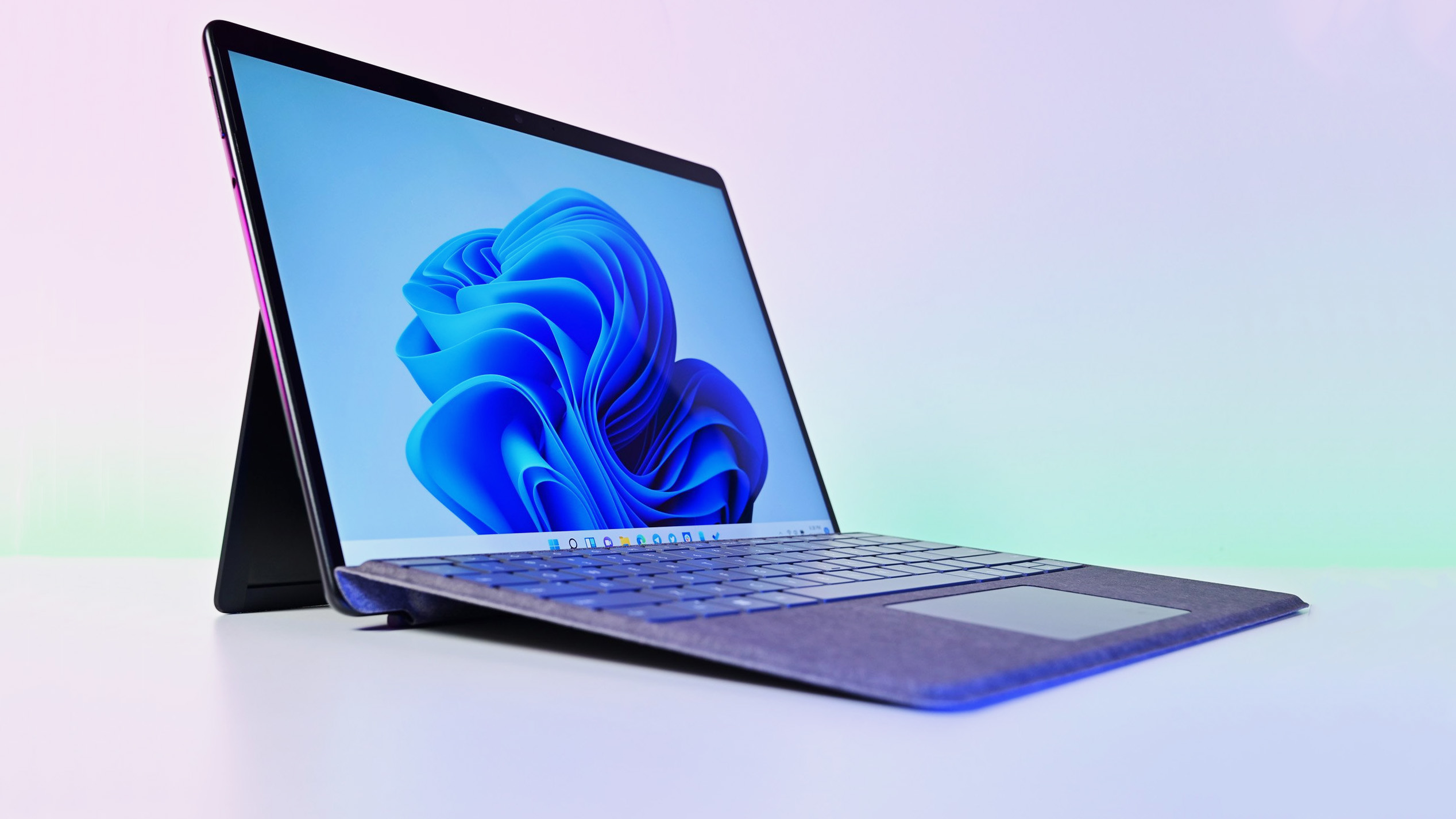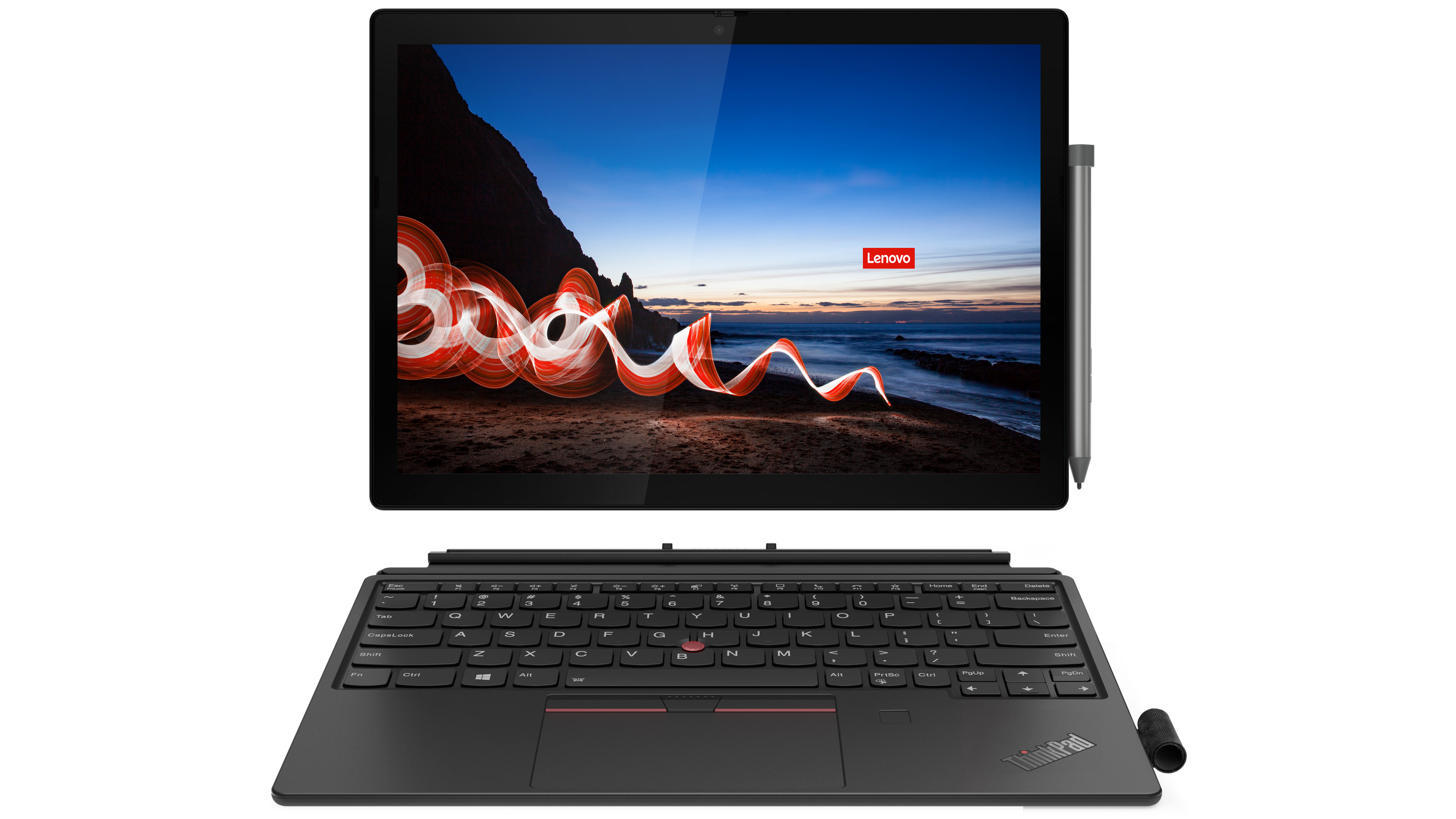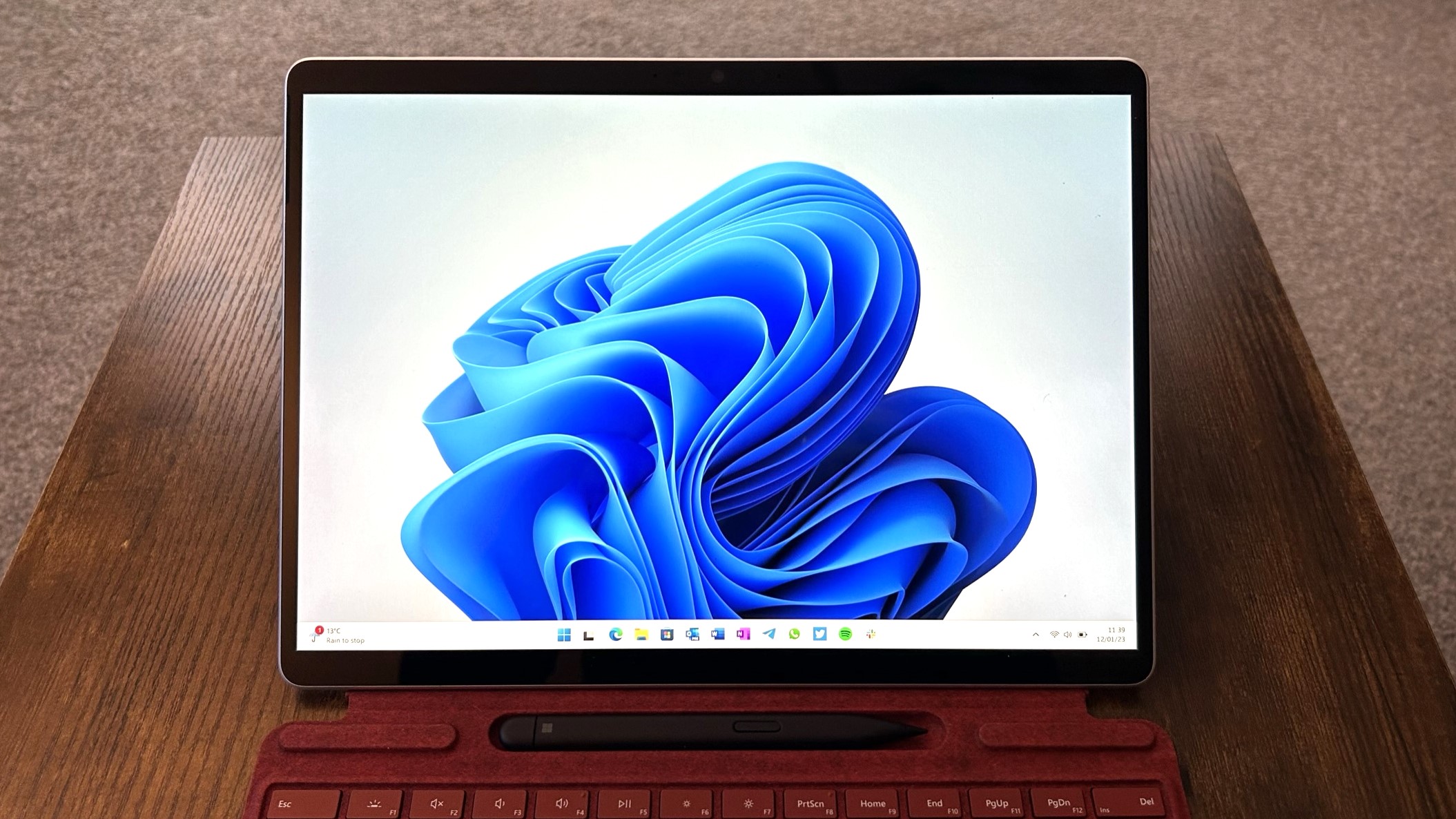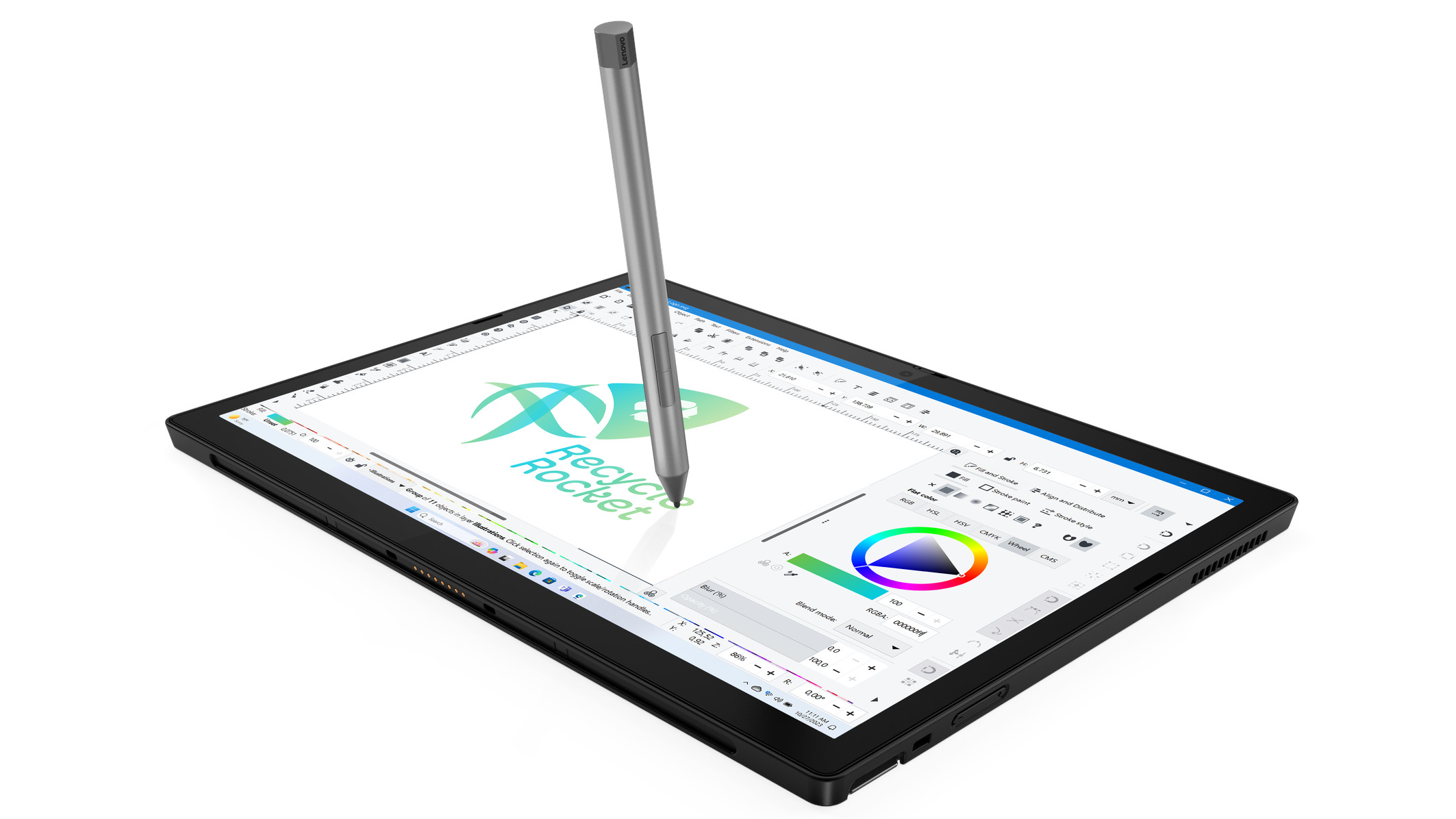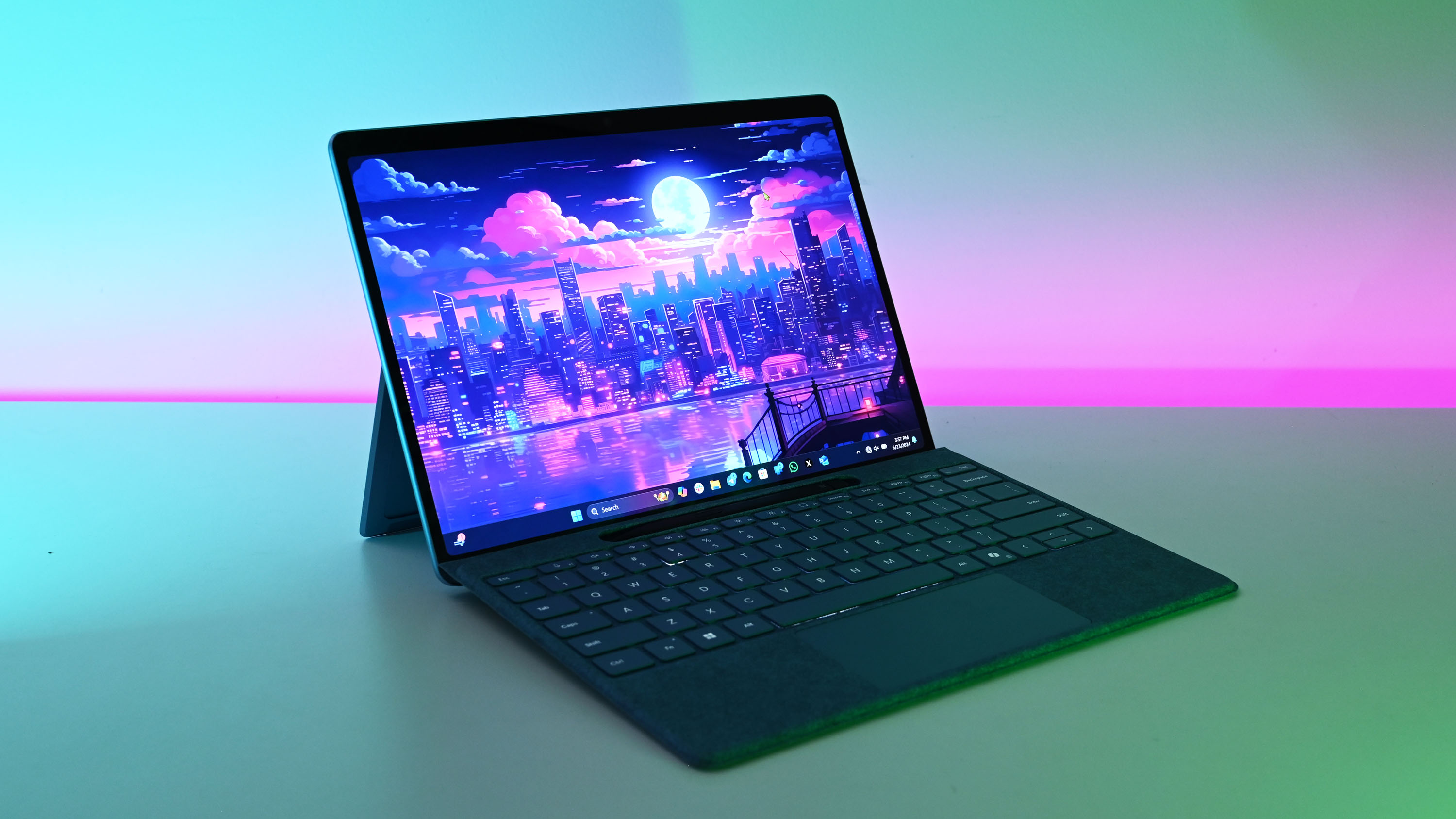Surface Pro 10 for Business vs. Lenovo ThinkPad X12 Detachable (Gen 2): Which 2-in-1 is better for you?
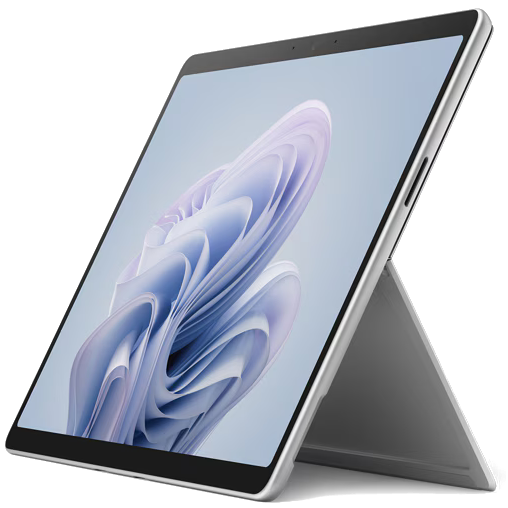
The Surface Pro 10 for Business is a great option for those who don't want the ThinkPad aesthetic. It has a larger display with a higher resolution, it starts at a more affordable price, and it has a bunch of premium features that you won't find in the X12 Detachable (Gen 2).
Pros
- High-res touch display with 120Hz refresh rate, 2.8K resolution
- Intel Core Ultra U-series performance with NPU for AI tasks
- Sleek 2-in-1 design with dual Thunderbolt 4 ports
- Premium inking experience
Cons
- Detachable keyboard and pen cost extra
- No 3.5mm audio jack
- Some might prefer the ThinkPad keyboard
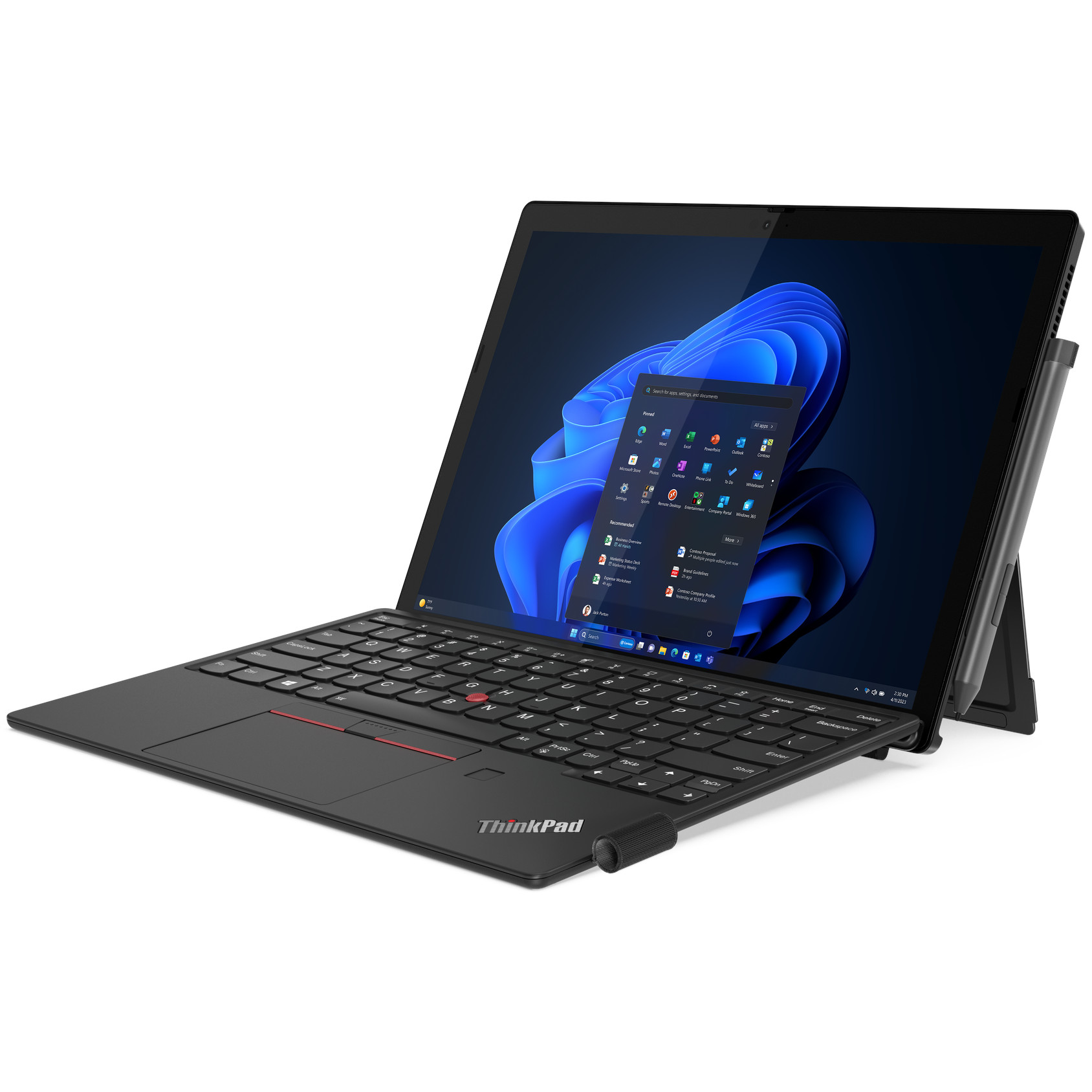
Love ThinkPad durability and design and want the versatility of a 2-in-1? The X12 Detachable (Gen 2) should be a great option. It has a smaller display with a lower resolution and it lacks some of the high-end features in the Pro 10 for Business, but the ThinkPad keyboard might be enough to sell the product for diehard fans.
Pros
- ThinkPad keyboard is excellent
- Durable 2-in-1 design with built-in stand
- 5MP/8MP cameras provide a clear picture
- Includes a 3.5mm audio jack
Cons
- Lower-res display isn't as impressive
- Only one Thunderbolt port
- Pen storage isn't as streamlined
Microsoft's Surface Pro 10 for Business and Lenovo's ThinkPad X12 Detachable (Gen 2) are both new 2-in-1 laptops for 2024. They share a similar design with a detachable keyboard and fold-out stand on the back of the tablet, and they also both feature Intel Core Ultra U-series CPUs with Neural Processing Unit (NPU) for improved performance with AI tasks.
They're both designed for a professional life with features to accommodate, though the X12 Detachable (Gen 2) notably has the coveted ThinkPad keyboard with TrackPoint system that will appeal to ThinkPad diehards. On the other hand, the larger display with higher resolution in the Pro 10 for Business will no doubt appeal to a lot of people, especially when the Surface PC starts at a lower price.
Let's dive into the similarities and differences to help you figure out which of these premium laptops is best for you.
Surface Pro 10 for Business vs. ThinkPad X12 Detachable (Gen 2): Specs
Before getting too deep into the comparison, let's take a look at the specs that make up each premium 2-in-1 laptop. The information you need might be listed right here.
| Header Cell - Column 0 | Surface Pro 10 for Business | ThinkPad X12 Detachable (Gen 2) |
|---|---|---|
| CPU | Intel Core Ultra 5 135U, Core Ultra 7 165U, vPro | Intel Core Ultra U-series, vPro |
| RAM | 8GB, 16GB, 32GB, 64GB LPDDR5x | Up to 32GB LPDDR5x |
| GPU | Intel Graphics (integrated) | Intel Graphics (integrated) |
| Storage | 256GB, 512GB, 1TB M.2 PCIe 4.0 NVMe SSD | Up to 1TB M.2 PCIe 4.0 NVMe SSD |
| Camera | Front-facing 1440p + IR, rear-facing 10.5MP | Front-facing 5MP + IR, rear-facing 8MP |
| Speakers | Dual 2W speakers, Dolby Atmos | Dual speakers, Dolby Audio |
| Display | 13 inches, 2880x1920 (2.8K), 3:2 aspect ratio, 120Hz, touch | 12.3 inches, 1920x1280 (FHD+), 3:2 aspect ratio, IPS, low power, touch |
| Ports | Two Thunderbolt 4, Surface Connect | Thunderbolt 4, USB-C (10Gbps), 3.5mm audio, Nano SIM |
| Wireless | Wi-Fi 6E, Bluetooth 5.3, 5G (optional) | Up to Wi-Fi 7, up to 5G, Bluetooth 5.3 |
| Battery | 48Wh | 42Wh |
| Dimensions | 11.3 x 8.2 x 0.37 inches (287mm x 208.6mm x 9.3mm) | 11.15 x 8.01 x 0.22 (0.34 with keyboard) inches (283.3mm x 203.5mm x 8.8-14.5mm) |
| Weight | 1.94 pounds (0.88kg) | N/A |
| Price | From $1,200 | From $1,399 |
Surface Pro 10 for Business vs. ThinkPad X12 Detachable (Gen 2): Price and availability
The Surface Pro 10 for Business is available now to buy from the business side of the Microsoft store. It starts at about $1,200 for a model with an Intel Core Ultra 5 135U CPU, 8GB of RAM, 256GB SSD, and Wi-Fi connectivity. Optional 5G connectivity is expected to arrive in the near future, but for now, you're stuck with Wi-Fi only.
The $1,200 starting price is for the tablet alone; the Surface Pro Keyboard for Business adds another $140, while the Slim Pen 2 costs about $130. You can bundle the two accessories together for about $280.
Lenovo's ThinkPad X12 Detachable (Gen 2) hasn't yet launched, but Lenovo lists it as expected to launch in April 2024. Prices are expected to start at $1,399. It's so far unclear if the keyboard and active pen are included in this price, as Lenovo usually offers options with the tablet alone alongside bundles with the two accessories.
Surface Pro 10 for Business vs. ThinkPad X12 Detachable (Gen 2): Design and features
The Surface Pro has long been the standard when it comes to 2-in-1 devices, and many companies mimic the versatile design. The Pro 10 for Business hasn't physically changed much since the Surface Pro 9, but that's OK. It's a sleek tablet with a fold-out stand on the back, front- and rear-facing cameras, and a detachable keyboard that turns it into a bonafide laptop.
The ThinkPad X12 Detachable (Gen 2) follows the same design idea with a built-in stand on the back, though its dimensions are slightly smaller due to the 12.3-inch display. It, too, has a detachable folio-style keyboard and touchpad, and it supports an active pen for inking. The keyboard includes a loop on the side for pen storage, which isn't nearly as refined as the built-in keyboard cradle and charger available with the Pro 10.
Lenovo's keyboard is ThinkPad in every way, with a red pointing nub and physical buttons for the TrackPoint system. ThinkPad keyboards are some of the best around, and this should be no different. The ThinkPad keyboard includes a fingerprint reader.
The ThinkPad's cameras hit 5MP on the front and 8MP on the back, with an IR sensor for Windows Hello included on the user-facing hardware. The ThinkPad also has a camera shutter, something the Pro 10 for Business lacks.
Microsoft's front-facing camera has a 1440p resolution with an IR sensor for Windows Hello, and its rear-facing camera hits 10.5MP for a truly crisp picture. Both laptops have a boosted Windows Studio Effects experience thanks to the onboard NPU (more on that below).
The Pro 10 features an NFC reader, and you can get a fingerprint reader with the Signature Keyboard with Fingerprint Reader add-on.
Port selection is a bit of a mixed bag. While the Surface Pro 10 for Business offers Thunderbolt 4 with both of its USB-C ports — the X12 Detachable (Gen 2) has one Thunderbolt 4 and one USB-C 3.2 — it lacks the 3.5mm audio jack available on the ThinkPad. The Pro 10 also has a proprietary Surface Connect port, though its uses are limited.
Wi-Fi 7 and Bluetooth 5.3 are available in the ThinkPad, with the Pro 10 relying on Wi-Fi 6E. Optional 5G connectivity can help you stay connected even when you're outside of the Wi-Fi range. So far, it looks like Microsoft is only offering Wi-Fi connectivity, but that could change any day. It remains to be seen whether Lenovo will offer 5G on release.
Surface Pro 10 for Business vs. ThinkPad X12 Detachable (Gen 2): Display
Details are still short on the ThinkPad X12 Detachable (Gen 2) display, but we do know that it measures 12.3 inches with a 3:2 aspect ratio and 1920x1280 (WUXGA) resolution. It's touch-enabled thanks to the 2-in-1 form factor, it has a low-power IPS panel, and it hits up to 400 nits brightness.
It appears to be the same display available in the first-gen model, which featured an anti-reflective finish and 100% sRGB color.
The Surface Pro 10 for Business has a more impressive touch display in almost all areas. It measures 13 inches with a crisp 2880x1920 (2.8K) resolution for the 3:2 aspect ratio, variable refresh rate up to 120Hz, and up to 600 nits brightness even without HDR enabled. Dolby Vision IQ is onboard, and it has an anti-reflective finish.
The ThinkPad's screen should be fine for business and productivity work, but those who want the extra pixels and variable refresh rate will have to stick with the Surface Pro 10 for Business.
Surface Pro 10 for Business vs. ThinkPad X12 Detachable (Gen 2): Performance and battery
The Surface Pro 10 for Business is equipped with Intel Core Ultra U-series CPUs, including the Core Ultra 135U and Core Ultra 7 165U with vPro. They run at a 15W base TDP with 12 cores, and they have an NPU for boosted performance in AI tasks.
Lenovo is so far listing just "Intel Core Ultra U-series" CPUs as available in the ThinkPad X12 Detachable (Gen 2), and it remains unclear whether they're the 15W versions or the 9W 134U and 165U versions (which are available in the Dell Latitude 7350 Detachable). No matter the U-series chip, they will also come with an NPU.
You can configure the Surface Pro 10 for Business with up to 64GB of LPDDR5x RAM, whereas the ThinkPad tops out at 32GB; both laptops have soldered RAM, preventing future upgrades. Be sure to get the right amount of memory from the factory. Microsoft and Lenovo also offer up to a 1TB M.2 PCIe 4.0 NVMe SSD for storage. A quick-access hatch on the back of the Surface Pro 10 for Business allows for future upgrades, a feature that appears to be lacking on the ThinkPad.
As for battery life, we'll have to test the two devices to get a good idea of how long they run on a charge. We know that the Surface Pro 10 for Business features a 48Wh battery and the X12 Detachable, a 42Wh battery, but many factors are at play. The wattage of the CPUs will play a big role, as will the Surface Pro 10's higher-res display. We'll have more information on battery life once we've tested these PCs.
Surface Pro 10 for Business vs. ThinkPad X12 Detachable (Gen 2): Which should you buy?
The Surface Pro 10 for Business is an attractive 2-in-1 option that should appeal to a lot of people. The standout difference is its touch display, which measures 13 inches with a variable 120Hz refresh rate, tons of brightness, Dolby Vision IQ, and an anti-reflective finish. It delivers a high-end inking experience with the Surface Slim Pen 2, which can be stored and charged within the attachable keyboard.
The Pro 10 for Business doesn't have as impressive of a front-facing camera (and it lacks a privacy shutter), but its rear camera goes beyond the X12 Detachable's 8MP cam with 10.5MP for a clearer picture.
Port selection is similarly sparse. The ThinkPad X12 Detachable loses a Thunderbolt connection (it still has a secondary USB-C) but adds a 3.5mm audio jack for those who don't want to rely on Bluetooth. You can get Wi-Fi 7 and Bluetooth 5.3 in the ThinkPad (the Pro 10 uses Wi-Fi 6E), and both should have optional 5G connectivity.
We'll have more information about performance and battery life when we can test these devices in-house, but they should be similar because both use Intel Core Ultra U-series CPUs.
Ultimately, choosing between these two devices will come down to pricing, availability, and your preferences when it comes to aesthetics. The X12 Detachable is recognizably a ThinkPad with a TrackPoint keyboard, while the Pro 10 has a more casual look that should fit into any situation.

Want a larger, higher-res display and the usual attention to detail that comes with all Surface products? The Surface Pro 10 for Business should be a better option for most people unless they're diehard ThinkPad fans who need the TrackPoint system included with the keyboard.

The ThinkPad X12 Detachable is going to appeal more to enterprise buyers, and it should also be the go-to pick for lovers of the ThinkPad design. Its display isn't as impressive, but it will nevertheless offer a versatile business companion that you can take anywhere thanks to 5G connectivity.
All the latest news, reviews, and guides for Windows and Xbox diehards.

Cale Hunt brings to Windows Central more than nine years of experience writing about laptops, PCs, accessories, games, and beyond. If it runs Windows or in some way complements the hardware, there’s a good chance he knows about it, has written about it, or is already busy testing it.
